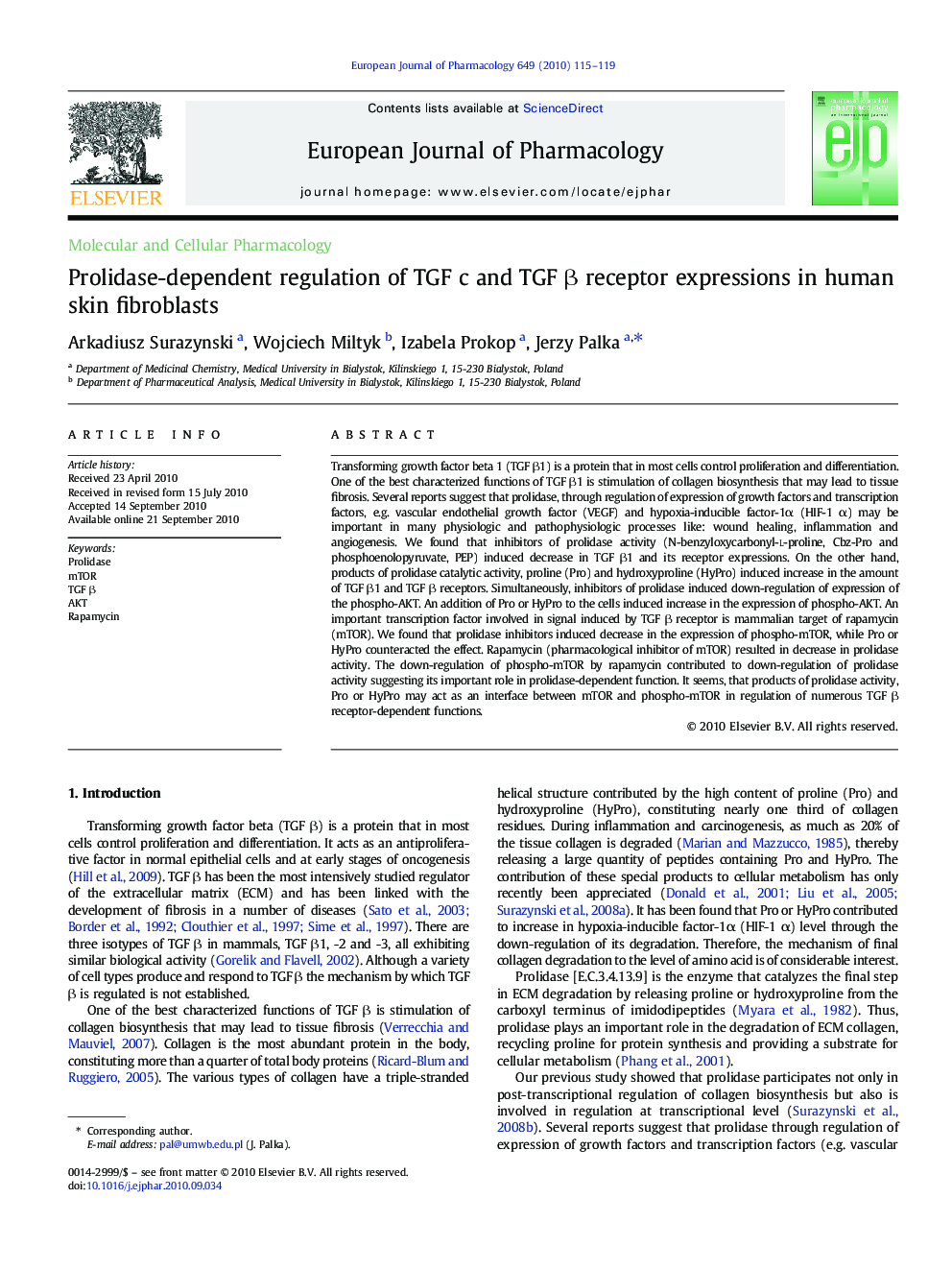| Article ID | Journal | Published Year | Pages | File Type |
|---|---|---|---|---|
| 2533137 | European Journal of Pharmacology | 2010 | 5 Pages |
Transforming growth factor beta 1 (TGF β1) is a protein that in most cells control proliferation and differentiation. One of the best characterized functions of TGF β1 is stimulation of collagen biosynthesis that may lead to tissue fibrosis. Several reports suggest that prolidase, through regulation of expression of growth factors and transcription factors, e.g. vascular endothelial growth factor (VEGF) and hypoxia-inducible factor-1α (HIF-1 α) may be important in many physiologic and pathophysiologic processes like: wound healing, inflammation and angiogenesis. We found that inhibitors of prolidase activity (N-benzyloxycarbonyl-l-proline, Cbz-Pro and phosphoenolopyruvate, PEP) induced decrease in TGF β1 and its receptor expressions. On the other hand, products of prolidase catalytic activity, proline (Pro) and hydroxyproline (HyPro) induced increase in the amount of TGF β1 and TGF β receptors. Simultaneously, inhibitors of prolidase induced down-regulation of expression of the phospho-AKT. An addition of Pro or HyPro to the cells induced increase in the expression of phospho-AKT. An important transcription factor involved in signal induced by TGF β receptor is mammalian target of rapamycin (mTOR). We found that prolidase inhibitors induced decrease in the expression of phospho-mTOR, while Pro or HyPro counteracted the effect. Rapamycin (pharmacological inhibitor of mTOR) resulted in decrease in prolidase activity. The down-regulation of phospho-mTOR by rapamycin contributed to down-regulation of prolidase activity suggesting its important role in prolidase-dependent function. It seems, that products of prolidase activity, Pro or HyPro may act as an interface between mTOR and phospho-mTOR in regulation of numerous TGF β receptor-dependent functions.
